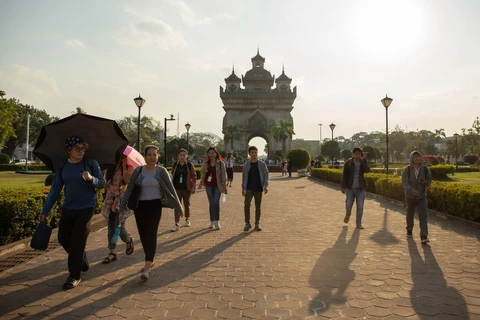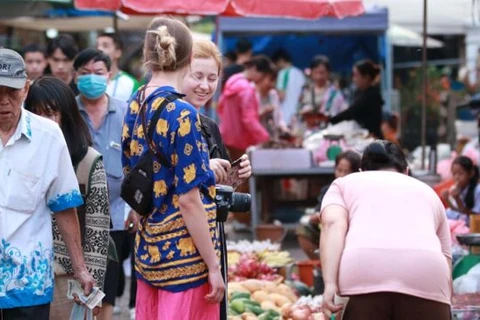Vientiane (VNA) – The year-on-year inflation rate in Laos declined to 38.86% in May, down from 39.89% in April, according to the Lao Statistics Bureau.
Although the inflation index of Laos has decreased for four consecutive months, this is still a very high level of inflation that causes income of households to decrease, affecting the consumption and investment.
The continued devaluation of the Lao kip (LAK) contributes significantly to drive up inflation, as around one-third of the goods included in price calculations are imported.
The price of food and non-alcoholic beverages rose by 52.69% in May, while medicines and medical care costs jumped by 40.78%, Vientiane Times reported.
Hotel and restaurant services rose by 37.4% with the cost of housing, water, electricity, and cooking gas also going up.
To deal with high inflation, the Bank of Laos on June 1 established a new department which is responsible for monitoring foreign currency inflows and promoting the wider use of the kip.
Meanwhile, the country’s economists remain optimistic about the economic recovery, forecasting that Lao is still able to achieve an economic growth of 4.5% this year.
Although international observers agree that Laos could return to a period of growth, the IMF and World Bank have both warned that the scale of Laos’s public and external debt poses substantial risks to this outlook./.
























